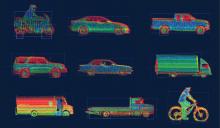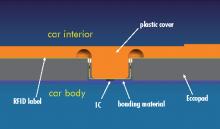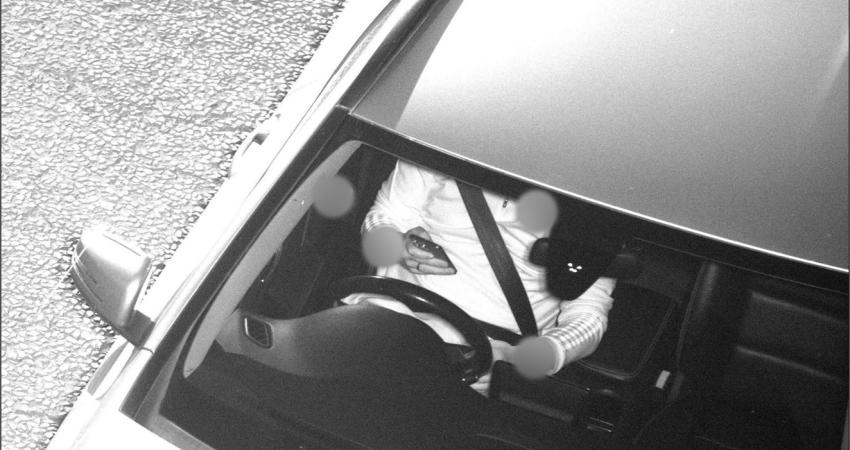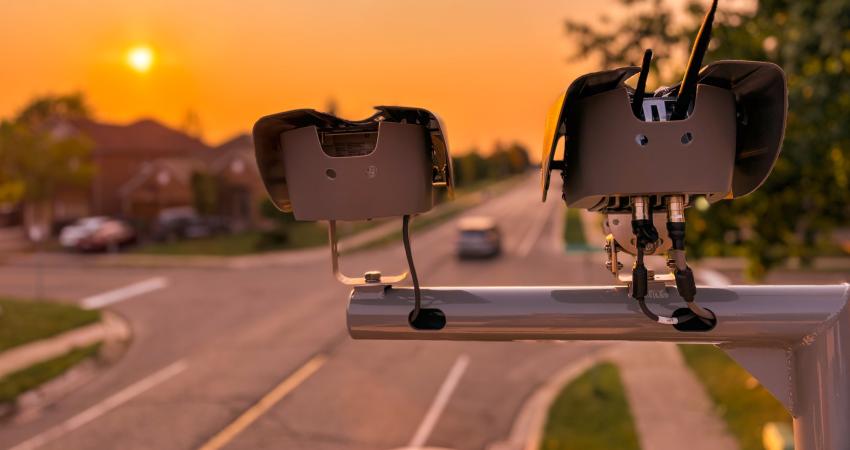According to Juliette van Driel of Dutch government organisation ProRail, who is to speak on the subject at the Rail Technology Conference in Paris in November, there is a requirement for identification tags on European trains.
Radio frequency identification (RFID) tags enable the monitoring and tracking of the separate components of a wagon, such as axles and wheels, over time. This enables the early identification of locomotive, carriage and wagon defects and the prevention of derailments.
“It’s imp
According to Juliette van Driel of Dutch government organisation ProRail, who is to speak on the subject at the Rail Technology Conference in Paris in November, there is a requirement for identification tags on European trains.
Radio frequency identification (RFID) tags enable the monitoring and tracking of the separate components of a wagon, such as axles and wheels, over time. This enables the early identification of locomotive, carriage and wagon defects and the prevention of derailments.
“It’s important because the freight transporters particularly cross the borders. You don’t want to raise any more barriers with national legislation, that’s why this needs to be a European regulation,” says van Driel.
ProRail currently use two systems to monitor train axels and wheels: Hotbox Detection and Wheel Impact Load Detection (WILD). Hotbox Detection measures if train axels are getting too hot. Overheating can cause jamming or breakage, which can result in the derailing of trains. If the axles or wheels get too hot, a signal is sent to the train’s service leader, who calls the operator, and the operator brings the train to a halt.
WILD is much more widely used than Hotbox Detection, says van Driel. “This system measures the dynamic and static power of the axels and wheels. If these are too high, we stop the train. With the train derailment in Borne, for example, high dynamic power had also occurred. If the carrier had been able to use this information, the derailment could have been prevented.”
In November 2013, a loaded freight train’s wagon derailed in Borne. Approximately four kilometres of track were badly damaged by this derailment. Repairs cost around 2.5 million euros and lasted several days.
According to van Dreil, RFID tags would provide maintenance information for each wagon, enabling operators to schedule maintenance to prevent breakdowns. “You want to prevent problem,” she says. You want to have maintenance scheduled before you reach the point where train parts break down. This is important for the longevity of the equipment, but also for track safety. Without an RFID tag, the details only come in based on the train number and it is difficult for the operator to identify which wagon it refers to.”
Radio frequency identification (RFID) tags enable the monitoring and tracking of the separate components of a wagon, such as axles and wheels, over time. This enables the early identification of locomotive, carriage and wagon defects and the prevention of derailments.
“It’s important because the freight transporters particularly cross the borders. You don’t want to raise any more barriers with national legislation, that’s why this needs to be a European regulation,” says van Driel.
ProRail currently use two systems to monitor train axels and wheels: Hotbox Detection and Wheel Impact Load Detection (WILD). Hotbox Detection measures if train axels are getting too hot. Overheating can cause jamming or breakage, which can result in the derailing of trains. If the axles or wheels get too hot, a signal is sent to the train’s service leader, who calls the operator, and the operator brings the train to a halt.
WILD is much more widely used than Hotbox Detection, says van Driel. “This system measures the dynamic and static power of the axels and wheels. If these are too high, we stop the train. With the train derailment in Borne, for example, high dynamic power had also occurred. If the carrier had been able to use this information, the derailment could have been prevented.”
In November 2013, a loaded freight train’s wagon derailed in Borne. Approximately four kilometres of track were badly damaged by this derailment. Repairs cost around 2.5 million euros and lasted several days.
According to van Dreil, RFID tags would provide maintenance information for each wagon, enabling operators to schedule maintenance to prevent breakdowns. “You want to prevent problem,” she says. You want to have maintenance scheduled before you reach the point where train parts break down. This is important for the longevity of the equipment, but also for track safety. Without an RFID tag, the details only come in based on the train number and it is difficult for the operator to identify which wagon it refers to.”








